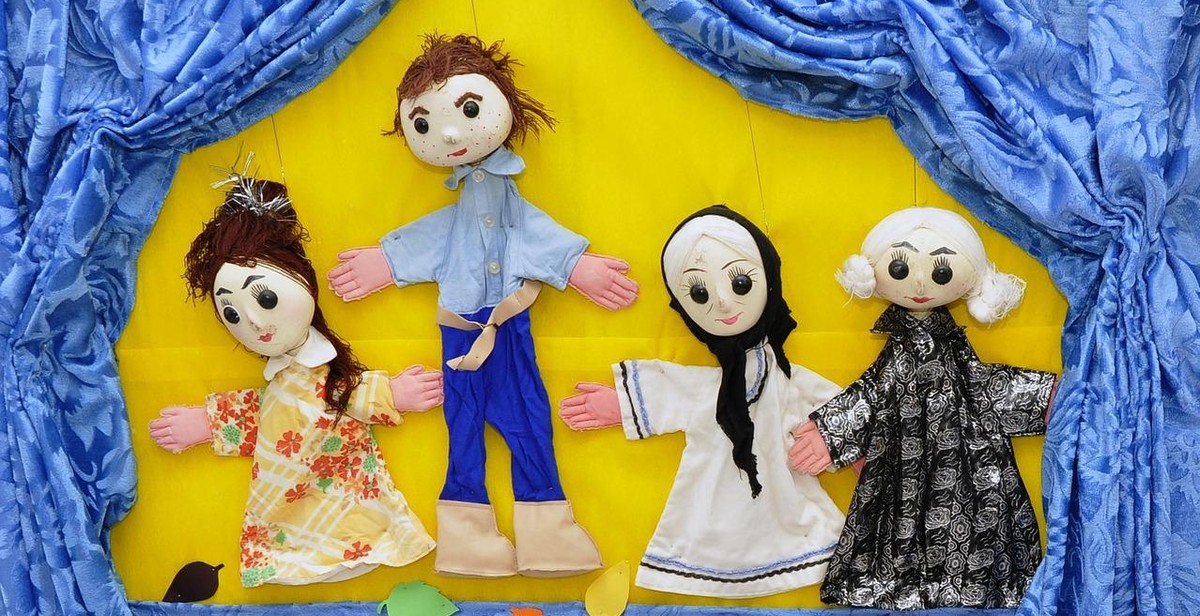How to Write a Marionette Script: Guidelines and Techniques for Crafting Engaging Puppet Show Stories
As a professional content creator and writer, I have had the pleasure of working on various projects over the years. One of the most unique and exciting projects I have worked on was writing a marionette script for a puppet show. Writing a script for a puppet show is not like writing a regular script. It requires a different approach and a unique set of skills.
If you are interested in writing a marionette script but don’t know where to start, you have come to the right place. In this article, I will share my personal experience and provide you with guidelines and techniques for crafting engaging puppet show stories.
Why Write a Marionette Script?
Marionette shows have been around for centuries and continue to capture the hearts and imaginations of audiences young and old. Writing a marionette script is a great way to tell a story in a unique and creative way. It allows you to bring characters to life and create a magical world that your audience can immerse themselves in.
What Makes a Good Marionette Script?
A good marionette script is one that engages the audience and keeps them entertained from beginning to end. It should have a well-crafted storyline, interesting characters, and plenty of humor and wit. The script should also be easy to follow and understand, even for young children.
In the following sections, I will provide you with guidelines and techniques for crafting a good marionette script that will captivate your audience and leave them wanting more.

Understanding Marionette Scriptwriting
Marionette scriptwriting is the art of writing stories that are specifically designed for marionette puppet shows. A marionette is a puppet that is controlled by strings or wires manipulated by a puppeteer. These puppets have been used to tell stories and entertain audiences for centuries.
Writing a marionette script is different from writing a screenplay or a stage play. The script must take into account the limitations of the puppet and the puppeteer. It must also be written in a way that allows for the puppet to move and interact with the other characters on stage.
The Importance of Storytelling in Puppet Shows
Storytelling is at the heart of puppet shows. A good story can captivate an audience and transport them to another world. It can make them laugh, cry, and feel a range of emotions. A well-written marionette script can do all of these things and more.
One of the most important aspects of marionette scriptwriting is creating engaging characters. The puppeteer must be able to bring these characters to life and make the audience care about them. The script must also have a clear and compelling plot that keeps the audience engaged from beginning to end.
Another important aspect of marionette scriptwriting is creating dialogue that is both believable and entertaining. The dialogue must be written in a way that allows the puppeteer to bring the characters to life and make them seem like real people.
Conclusion
Writing a marionette script requires a unique set of skills and knowledge. It is a challenging but rewarding form of storytelling that has been entertaining audiences for centuries. By understanding the importance of storytelling and creating engaging characters and dialogue, you can craft a marionette script that will captivate audiences and leave them wanting more.

Guidelines for Writing a Marionette Script
Writing a marionette script can be a challenging task, but with the right guidelines, you can craft an engaging puppet show story that captivates your audience. Here are some tips to help you get started:
Develop a Clear Plot
A clear plot is the backbone of any story, and it’s no different when it comes to writing a marionette script. Your story should have a clear beginning, middle, and end, with a well-defined conflict that the characters must overcome. Think about the message you want to convey through your story and develop your plot around it.
Make sure that your plot is easy to follow, especially for younger audiences. Use simple language and avoid complex plot twists that might confuse your viewers. Keep in mind that marionette shows are often performed in front of live audiences, so your plot should be engaging enough to hold their attention.
Create Engaging Characters
Characters are the heart of any story, and marionette shows are no exception. Your characters should be well-defined and relatable, with distinct personalities that set them apart from one another. Think about their motivations, fears, and desires, and use these to create compelling character arcs.
When creating your characters, keep in mind the limitations of marionette puppets. They have limited movement capabilities, so avoid creating characters that require complex actions or expressions. Instead, focus on creating characters that can be easily brought to life on stage.
Craft Compelling Dialogue
Dialogue is a crucial element of any story, and it’s no different in marionette shows. Your dialogue should be engaging and memorable, with each character having a distinct voice that reflects their personality. Use dialogue to reveal character traits, advance the plot, and create tension.
When crafting your dialogue, keep in mind the limitations of marionette puppets. They can’t move their mouths or show facial expressions, so avoid relying too heavily on verbal communication. Use body language, music, and sound effects to convey emotions and enhance the impact of your dialogue.
Consider Your Audience
Finally, consider your audience when writing your marionette script. Think about their age, interests, and attention span, and tailor your story accordingly. Use humor, music, and visual elements to keep younger audiences engaged, while older audiences might appreciate deeper themes and more complex characters.
Keep in mind that marionette shows are often performed in front of live audiences, so consider how your story will translate to the stage. Use props, lighting, and staging to enhance the impact of your story and create a memorable experience for your viewers.
- Develop a clear plot
- Create engaging characters
- Craft compelling dialogue
- Consider your audience
By following these guidelines, you can craft a marionette script that captivates your audience and brings your story to life on stage.
Techniques for Crafting Engaging Marionette Show Stories
Writing a marionette script requires creativity, imagination, and attention to detail. To captivate your audience, you need to craft a story that is engaging and entertaining. Here are some techniques that can help you create a compelling marionette show:
Use Humor
Humor is a powerful tool in storytelling. It can lighten the mood and create a connection with your audience. Incorporating funny moments into your marionette show can make it more memorable and enjoyable for your viewers. You can use puns, jokes, and physical comedy to add humor to your story.
Incorporate Music and Sound Effects
Music and sound effects can enhance the atmosphere of your marionette show. They can create emotions, set the tone, and add depth to your story. You can use a variety of sound effects to create different moods, such as suspense, excitement, or sadness. Additionally, incorporating music can help to engage your audience and make your show more memorable.
Add Visual Interest
Visual interest is crucial to keeping your audience engaged. You can use different colors, textures, and shapes to create a visually interesting world for your marionette show. Additionally, you can use different lighting techniques to create mood and highlight important moments in your story. Consider adding props and scenery to your show to create a more immersive experience for your viewers.
Create Suspense and Tension
Suspense and tension can keep your audience on the edge of their seats, wondering what will happen next. You can create suspense by building up to a moment of tension, such as a character facing a difficult decision or a dangerous situation. Additionally, you can use cliffhangers to keep your audience engaged and eager to see what happens next.
- Use humor to lighten the mood and connect with your audience
- Incorporate music and sound effects to enhance the atmosphere of your show
- Add visual interest with props, scenery, and lighting techniques
- Create suspense and tension to keep your audience engaged
By using these techniques, you can craft an engaging and entertaining marionette show that will captivate your audience from beginning to end.

Tips for Rehearsing and Performing Your Marionette Show
Writing a great marionette script is just the beginning. To truly bring your puppet show to life, you need to rehearse and perform it with precision and passion. Here are some tips to help you get the most out of your rehearsals and performances:
Rehearse, Rehearse, Rehearse!
Practice makes perfect, and this is especially true when it comes to marionette shows. Make sure you have plenty of time to rehearse your show before performing it. This will give you the opportunity to work out any kinks in your script and choreography, and ensure that your marionettes are moving smoothly.
Focus on Timing and Pacing
A marionette show is like a dance, with the puppets moving in time to the music and dialogue. Make sure you pay attention to the timing and pacing of your show during rehearsals. This will help you ensure that your marionettes are moving in sync with each other, and that the show flows smoothly from start to finish.
Engage Your Audience
A marionette show is not just about the puppets – it’s also about engaging your audience. Make sure you make eye contact with your audience, and use expressive gestures and movements to bring your characters to life. This will help your audience connect with your characters and become more invested in the show.
Have Fun!
Finally, remember that marionette shows are meant to be fun! Don’t take yourself too seriously, and let yourself enjoy the process of rehearsing and performing your show. When you have fun, your audience will have fun too!
